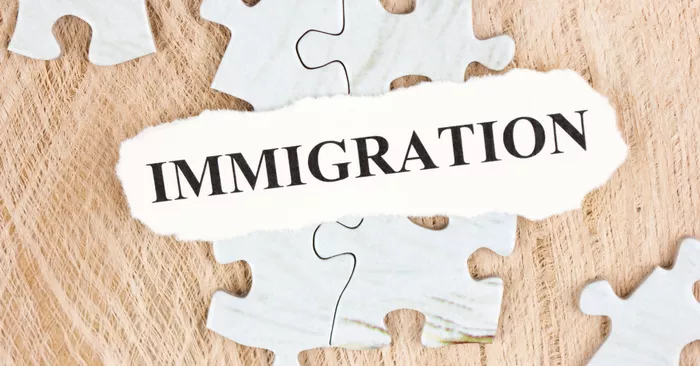Immigration, the movement of people from one country to another with the intention of settling there permanently or temporarily, has been a cornerstone of human civilization for centuries. While it often sparks debates and controversies, immigration brings forth a plethora of benefits for both potential immigrants and the host countries. From economic prosperity to cultural enrichment, the advantages of immigration are profound and multifaceted.
For Potential Immigrants
1. Economic Benefits
Higher Wages and Better Job Opportunities:
One of the primary drivers for individuals considering immigration is the prospect of higher wages and better job opportunities. In many cases, immigrants are drawn to countries with robust economies and thriving industries where they can leverage their skills and expertise to secure employment with competitive salaries. Moreover, immigrants often fill essential roles in sectors facing labor shortages, such as healthcare, technology, and agriculture, leading to increased demand and higher wages for these positions.
Improved Standard of Living:
Immigration opens doors to a better standard of living, encompassing various facets such as healthcare, education, and infrastructure. Many destination countries offer superior public services and amenities compared to the immigrants’ countries of origin, providing them and their families with access to quality healthcare, education, and transportation systems. This improvement in living conditions contributes to overall well-being and enhances the prospects for a brighter future.
Entrepreneurial Opportunities:
Immigration fosters entrepreneurial spirit and innovation as immigrants often bring unique perspectives, skills, and business ideas to their new homes. Many successful businesses around the world have been founded or co-founded by immigrants, driving economic growth, creating jobs, and enriching local communities. Furthermore, immigrant entrepreneurs contribute to the diversification of industries and the expansion of markets, leading to increased competitiveness and prosperity.
2. Social Benefits:
Access to Quality Education:
Education is often a top priority for immigrants seeking better opportunities for themselves and their children. Destination countries with reputable educational institutions offer immigrants the chance to pursue higher education and acquire valuable skills and qualifications that can enhance their career prospects. Additionally, access to quality education empowers immigrants to fully integrate into society and contribute meaningfully to their adopted communities.
Improved Healthcare Systems:
Immigration enables individuals to access superior healthcare systems and services, leading to better health outcomes and improved overall well-being. Many destination countries provide comprehensive healthcare coverage, including preventive care, medical treatments, and emergency services, ensuring that immigrants receive the necessary support to maintain their health and vitality.
Cultural Diversity and Experiences:
Living in a multicultural society offers immigrants a rich tapestry of experiences, exposing them to diverse languages, traditions, and customs. Immigrants bring their unique cultural heritage and perspectives, enriching the cultural landscape of their new homes and fostering cross-cultural understanding and appreciation. This cultural exchange promotes tolerance, empathy, and global interconnectedness, ultimately strengthening social cohesion and harmony.
Safety and Security:
For individuals fleeing violence, persecution, or instability in their home countries, immigration offers a lifeline to safety and security. Destination countries provide asylum and refuge to those in need, offering protection from harm and the opportunity to rebuild their lives in a safe and stable environment. This humanitarian aspect of immigration underscores the fundamental principles of compassion, solidarity, and human rights.
Family Reunification:
Immigration facilitates family reunification by enabling individuals to sponsor their relatives for immigration to the host country. This reunification process allows families to be reunited after enduring separations due to migration or other circumstances, promoting emotional well-being, social support, and familial bonds. Moreover, family reunification strengthens social networks and communities, fostering a sense of belonging and interconnectedness.
Pathways to Citizenship:
Obtaining citizenship in the host country is often the culmination of the immigrant journey, granting individuals full rights, privileges, and responsibilities as members of society. Citizenship offers immigrants the opportunity to participate fully in civic life, including voting in elections, running for public office, and accessing government programs and services. Moreover, citizenship symbolizes integration, belonging, and commitment to the values and ideals of the host country.
For General Interest
1. Economic Impact of Immigration:
Immigrants play a vital role in driving economic growth and prosperity in host countries. By filling essential roles in the workforce, immigrants contribute to increased productivity, innovation, and competitiveness across various industries. Moreover, immigrant entrepreneurs create jobs, stimulate investment, and fuel economic dynamism through their innovative ventures and business endeavors.
Immigration has a positive impact on tax revenue and social security systems, contributing to the sustainability of public finances. Immigrants pay taxes, including income tax, sales tax, and property tax, which help fund public services and social welfare programs. Additionally, immigrants contribute to social security systems through their participation in the labor force, supporting the financial stability of these programs for current and future beneficiaries.
2. Social Impact of Immigration:
Immigration enriches societies by fostering cultural diversity, intercultural exchange, and social cohesion. Immigrants bring with them a wealth of cultural traditions, languages, and customs, adding vibrancy and depth to the social fabric of their new communities. This cultural exchange promotes tolerance, empathy, and mutual respect, counteracting prejudice, discrimination, and xenophobia.
While immigration poses challenges related to integration and social cohesion, it also presents opportunities for collaboration, dialogue, and mutual understanding. Destination countries can implement policies and programs to support immigrant integration, including language training, employment assistance, and cultural orientation. By promoting inclusive communities and fostering a sense of belonging, societies can harness the full potential of immigration as a catalyst for social progress and harmony.
Conclusion
In conclusion, immigration offers a multitude of benefits for both potential immigrants and host countries, ranging from economic prosperity to cultural enrichment. By embracing diversity, fostering inclusion, and upholding human dignity, societies can harness the transformative power of immigration to build a more equitable, prosperous, and harmonious world for all.


